- Home
- Andrew McGahan
Underground Page 3
Underground Read online
Page 3
I blinked at her in disbelief.
She said, ‘You are being held by forces of the Great Southern Jihad.’
Christ. Well, I’d suspected all along that these people were Islamic terrorists, and that name, and the burqa, only confirmed it. Still, she didn’t sound at all foreign. Her accent was sharply Australian. And there was something about her eyes. They were a very pale blue, and the skin around them was powder white, almost albino-looking. Certainly not Middle Eastern.
Odd, too, for Islamic extremists to send a woman to guard me.
She might have been reading my mind. ‘I’m in command here.’
I struggled for a futile moment against the ropes, then lapsed again. ‘That doesn’t make any sense at all,’ I croaked, my throat very dry.
The freakishly white eyebrows lifted. ‘You don’t think so?’
‘Men are in charge with you lot, not women.’
‘The men do what I say.’
‘Tell them to let me go then.’
She didn’t reply, only watched me. Burqa or not, I could sense that she was tall, even when seated, and slender too.
‘You’re thinking about my body, aren’t you?’ she said. Her tone was convinced and utterly humourless. She’s mad—that was my first real thought about her. ‘You’re wondering if I’m naked underneath, and what my breasts look like.’
Oh dear . . . Barking mad.
‘What do you people want with me?’ I asked.
‘I didn’t want you at all.’
‘What’s that supposed to mean?’
She shifted in her seat, leaning back and crossing her legs, a position that looked incongruous in the burqa. I could see now that she was wearing black leather boots, long ones that disappeared up into her robes. That was incongruous too.
‘I was away,’ she said. ‘Those idiots upstairs did this on their own. Without any instructions from me. They were supposed to be lying low for the time being, but they got wind that the Prime Minister’s brother was staying nearby, all alone at his empty resort, and then with this cyclone clearing the roads . . . Well, you know the rest. It’s very annoying. I had other plans for the postal van and the uniforms.’
‘So like I said, let me go.’
‘You’re certainly a problem to me, I’ll admit that.’ But there wasn’t any hint of impending freedom in her statement. There was only an implication that some problems can simply be disposed of, not solved.
‘I don’t get it,’ I said. ‘You can’t be an Islamic group. They’re all locked up. They got all of you.’
She shook her head. ‘No one knows we even exist.’
‘But you are Muslims?’
‘We are. We’re warriors for Allah.’
‘Warriors? You lot?’
She leant forward again, those pale eyes flaring. ‘Don’t think we won’t kill you. We’ve killed before. Our hands are red with blood.’
‘What use am I to you dead? I assume your men grabbed me so they could bargain with my brother. He’ll want me alive. And unharmed.’
‘Your brother hates you. My men might not know that, but I do.’
And that really did scare me, because it was perfectly true, but I’d been praying that no one else was aware of the fact.
I swallowed drily. ‘I could use some water, you know.’
She considered. ‘Yes . . . I don’t think we need to make any decisions right this minute, and in the meantime we may as well let you live.’ She called out, and I heard the door at the top of the steps open. ‘Bring him some food and water!’
There was a bustle from the upper floor, and then my original three abductors trooped down the stairs carrying bottles of water and sandwiches and guns. They all looked even younger, suddenly, and abashed, avoiding their leader’s glance.
‘Untie him,’ she instructed, ‘but keep a gun on him.’
‘What about the hood?’ one of them asked.
‘Forget it. He’s already seen your stupid faces.’
The boy nodded, going red. In minutes the ropes were off, and I was gulping water gratefully. (The hangover had settled in now, well and truly.) I was sitting against one wall, and the gang watched me from the other side of the room. Three nervous boys with guns pointed my way.
‘They’re certainly a fine-looking team,’ I said to the woman.
‘They’ve made a mistake,’ she corrected. ‘But don’t judge us by these three here. Or by their deceased brother back at the resort. We are a deadly organisation, and we have powerful friends. The most powerful in the world.’
‘Oh, right.’ I was shaken in all sorts of ways, but I couldn’t just lie down and accept this stuff unchallenged. ‘You’re the local al-Qaeda chapter, I suppose.’
‘Something like that.’
‘And you talk to bin Laden’s ghost.’
‘Maybe.’
And I could swear she was smiling at me now.
‘You’re fucking crazy,’ I said.
That was too much for the boys. They muttered in fury, and one of them advanced across the room, his gun aimed.
‘Leave him be,’ the woman snapped. She rose from the chair, and stretched, arms above her head, as if she’d gone stiff from sitting. And it was the weirdest thing, but for a moment the burqa draped closely about her in a way that I’d thought burqas were never supposed to, showing off far too many curves, and damned if it didn’t seem that she really was naked underneath, apart from those leather boots that appeared to go right up past her knees. And her men weren’t watching me anymore. They were watching her. Hopelessly. Desperately.
Her arms came down, and she was covered in shapeless black again. ‘You’ll see how sane we are, soon enough.’
‘Sure,’ I said, throwing out my last barb. ‘You and your three little friends. You’re the great destroyers.’
Her voice went low. ‘We are.’
And she was leaving now, sailing serenely towards the stairs.
‘For a start—we’re the ones who nuked Canberra.’
FIVE
Poor old Canberra.
How did that joke go, afterwards?
What if they blew up the capital city, and nobody noticed?
Well, it wasn’t quite like that. And I was there, remember.
I woke up in my hotel room, after the night with my brother, to the sounds of yelling and hurried movements throughout the building. I switched on the TV and there it was, blazing across the news on every channel. An Islamic terrorist group, who gave no name, claimed to have planted an explosive thermonuclear device somewhere in Canberra. More than just ‘claimed’. They had sent photos of the bomb, and blueprints of it, to the Federal Police and to all the media, just so people knew it was for real. And it was set to detonate seventy-two hours after the first warning.
I hardly need describe the bedlam that ensued.
Mind you, it struck me at the time how forbearing the terrorists were being. Why give the three-day alert? Why not just nuke the place and be done with it? They weren’t even making any demands, like the release of al-Qaeda prisoners or the withdrawal of troops from the Middle East. It was just the blunt warning—in three days we press the button. Strange. And there were certainly plenty of people who thought the whole thing was a bluff. But while the police and the army searched madly for the bomb, and my brother made defiant speeches about not being cowed by terrorist threats, there was no choice but to evacuate the town.
And the thing was, three days was plenty of time. I don’t mean that there wasn’t panic in the streets, but if ever a city was made to be abandoned quickly, it was Canberra. (That was another of the jokes, even on the first morning.) A mere three hundred thousand people, spread across sprawling, spacious suburbs, surrounded by wide empty freeways and native bushland. And for all that the city was almost a hundred years old, it wasn’t really a place that many residents had a history in. Primarily, it was only ever a garrison town for the public service, and like troops decamping from a military compound, people loaded up and
got out fast.
So overall, the evacuation was surprisingly orderly. I made my own escape late on the first night, crawling patiently along in my car amidst tens of thousands of other vehicles, all of them jammed with people and property. There were only three routes to choose from: north-east along the Federal Highway to Sydney, south-west along the Hume to Melbourne, or dead south into the hills, along the Monaro. I opted for Sydney, where, by decree, every hotel room and dormitory had been thrown open, free of charge. And as I crept along in first gear, I watched an unbroken stream of commandeered trucks passing by in the opposite lanes. They were heading into Canberra, destined for the National Gallery, or for the National Museum, or for various government archives, or for any other such place where the national treasures and records might be in need of rescuing.
Staring at those trucks, a dark part of me found the whole thing hilarious. Paintings by dead artists, relics of dead racehorses, old bats belonging to dead cricketers. How bizarre are the things we value? And once we’d saved the family jewels, well, sure—blow up Canberra by all means. I didn’t mind. It was such an inconvenient place. Off in the middle of nowhere. Stinking hot in summer. Freezing in winter. And totally soulless, all year round. Still, there were one or two decent restaurants I would miss, and what would happen to the nation’s sex industry, once the mail order warehouses and porn studios of Fyshwick had been vaporised? That, at least, was a grim business.
Either way, after forty-eight hours of the most frenzied activity imaginable, Canberra was stripped of virtually everything that mattered. By then, it was populated purely by soldiers and police, some still searching for the bomb, but most of them sweeping through the suburbs, house by house, to make sure everyone was gone. The last evacuee left Canberra just fourteen hours before the deadline. And who do you think that person was? It was my brother, of course.
The footage is famous. The Prime Minister waiting bravely until all his subjects have reached safety ahead of him, and then the farewell from the grassy lawn atop Parliament House. The solemn lowering of the flag, the final salute, the official party wafting away by helicopter, eastwards, fading into the ironic sunrise as hope and beauty die. Not a dry eye in the house. My brother—forever after to be known as Bernard ‘Last Man Out’ James.
What bullshit. They left a cameraman behind to film that chopper flying away, for one thing. So maybe he was the last man out. Or most likely it was some anonymous soldier, performing a final sweep. And no doubt there were a few crazy loners who never left at all, hidden away cleverly from the evacuation teams—those who either refused to believe there really was a bomb, or those who were bent on looting until the last possible minute, or those who simply decided to martyr themselves in the fireball. Whoever the last man out was, it wasn’t the Prime Minister.
Anyway, with an hour to go the army had pulled back to a fifty-kilometre radius from the city centre. Nine p.m. was zero hour. The highways were barricaded, the airspace over the town had been cleared. There was nothing to do now but wait and watch. I was safely ensconced in a Sydney bar by this stage, drinking up big for the occasion, eyes glued to the TV screens. Camera crews were filming from vantage points near Yass, a half-hour’s drive north of the capital. It was, without question, the most highly rated moment in television history—throughout the world, not just here in Australia. A live nuclear explosion was news, even if it was in some unheard-of little city far away down-under. The only frustration was that nothing of the actual town could be seen. From fifty k out there was little visible but hills and sheep paddocks and scrub.
The explosion wasn’t bad though. It went off five minutes late, no doubt for the sake of good drama, and then the night sky lit up, white and stark and shocking. (The bar around me went dead silent.) For a moment after that there was only darkness, but then the cloud rose majestically over the hills. I’m told that to observers on the fifty-k limit, the fireball was in fact disappointingly small. They were just too far away. But for those of us in that bar, and for the billions of viewers around the globe, the television cameras zoomed in and it was an awesome sight, boiling and evil, and an indisputable sign that the world had changed forever, yet again.
It sure as hell changed Australia. True, we’d been fighting the war on terror for years, and we already had some of the toughest security laws in the world, but this was Armageddon on a whole new level. And for Bernard in particular, it was his finest hour. He was unpopular, dull, and as lame-duck as they came. But when the crisis was actually upon him, he stood forth and calmly took control. The state of emergency, for instance—suspending all normal due process and individual freedoms, and replacing them with martial law—that was his idea. So was the decree that effectively outlawed Islam, and began the process of rounding up all believers into the camps and the cultural precincts. Parliament, grateful and impressed, further empowered him to act unilaterally for the duration of the crisis, without reference to either of the Houses, and without having to call the election that was soon due. Stability was needed now, not a panicked country milling about the polls.
I ask you. Could the little bastard have been any luckier? A month after the bomb, his approval rating was at seventy-five per cent!
Of course, the state of emergency was only supposed to last until things settled down again. But here we are, two years later, and it’s still in force. My brother remains in command, the election remains on hold, and nothing has settled down at all. It’s like Canberra was only the starting gun—just look at the endless spate of terrorist attacks we’ve witnessed ever since. Car bombings. Assaults on oil depots, and the communication networks, and sporting crowds. Not to mention all the kidnappings and assassinations of public figures. The Deputy Prime Minister—captured and beheaded, and the video screened across the nation. Then it was the Governor-General—shot. Then it was the Leader of the Opposition—blown up. Then it was a High Court judge—beheaded. Then it was a state Commissioner of Police—beheaded again. The list goes on and on.
And the security responses just keep getting tougher. All these laws and decrees. The massive enlargement of the Federal Police, and of ASIO, and of the armed forces. The mushrooming of roadblocks and security checkpoints throughout the streets. The issuing of identity cards to all citizens, along with loyalty oaths. All the new prisons. All the new ghettos. All the new wars we’ve declared.
Nothing is the same.
And yet, do you know what strikes me as weirdest about it all?
It’s this. For a country whose capital has ceased to exist, we’ve carried on with remarkably little civil inconvenience. Not a soul died in Canberra—that anyone knows of, at least. Our national treasures are all safe. The government departments have established themselves happily in Sydney or Melbourne, right where they would’ve always preferred to be. And Parliament? Well, there it was in Melbourne, just two weeks after the bomb, making itself at home, appropriately, in the Royal Exhibition Building where it first sat back in 1901.
My brother, meanwhile, moved straight into Kirribilli House, and announced that it was now the official Prime Ministerial residence. Which was not to suggest that Sydney was therefore to be the new capital city. Nor, indeed, was it to be Melbourne. Quite simply, there is no new capital city—a solution which neatly avoids the kind of pointless argument that led to Canberra being built in the first place. And the fact that Parliament and the Prime Minister are now situated a thousand kilometres apart doesn’t seem to matter much to anyone. My brother has increasingly little to do with Parliament anyway. The truth is, since the state of emergency legislation was passed, he’s had no need of Parliament at all.
So the administration of the country sails on—the assassinations aside—and for all the outrage and fury and breast-beating and avowals of revenge, it seems to me that Canberra is genuinely mourned by very few. Only a small amount of footage has ever been shown of the ruins—the pictures, shot from the air, are considered bad for morale—but the destruction looks rather final. There, for a
ll to see, is the bent and mangled flagpole over the scorched lump of Parliament House. There’s the High Court building collapsed into rubble. There are the black poisoned waters of Lake Burley Griffin, from which the Captain Cook fountain will never rise again.
The bomb, we’re told by experts, was situated in the suburb of Yarralumla, only a kilometre from the city centre. Why it wasn’t found by the searchers, no one can say. How the terrorists built it, or from where they stole it, no one can say either—although man-hunts continue to this day all around the world. In any case, the device was apparently in the order of three to four megatons, over a hundred times that of Hiroshima or Nagasaki. And worse, it was particularly dirty in terms of radiation. Canberra, we are informed, will glow in the dark for decades to come.
So there has never been any talk of rebuilding. Instead, the ruins have been declared a national shrine, to be left untouched in terrible desolation forever, a memorial. Roadblocks and fences have been built all the way around the city in a huge circle, so that no wanderer or ghoulish tourist can ever defile the ruins. Just to make sure, the army now patrols the perimeter, working from their giant new base at Yass—the base itself being a symbol, according to the military chiefs, that Australia will never be defeated. Why, the very airspace above the city has become a forbidden zone. It’s on the direct flight path between Sydney and Melbourne, true enough, but planes are diverted far around it, so that even from ten thousand metres passengers will be spared the horrible vision.
You see what I mean? We’ve cut poor old Canberra out of our lives like it never existed. I suppose that once you take the people out of a city, it just becomes a collection of buildings with no purpose or value. But to be simply erased—could there be a worse fate for a town?

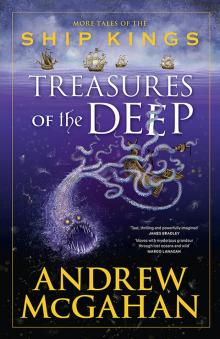 Treasures of the Deep
Treasures of the Deep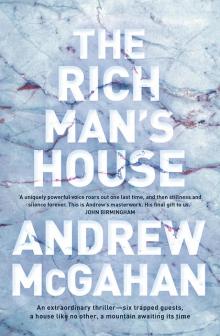 The Rich Man’s House
The Rich Man’s House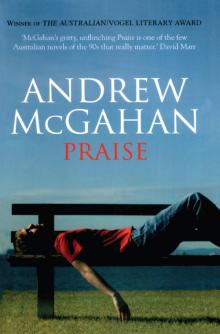 Praise
Praise The White Earth
The White Earth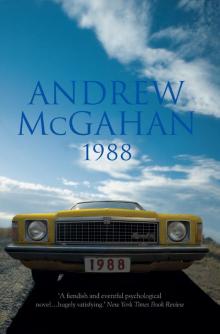 1988
1988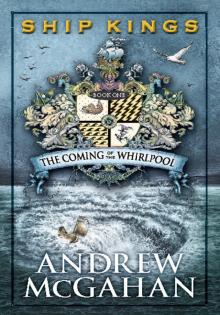 The Coming of the Whirlpool
The Coming of the Whirlpool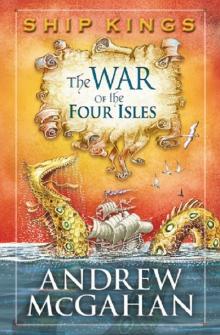 The War of the Four Isles
The War of the Four Isles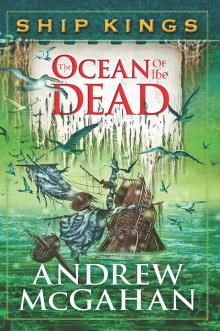 The Ocean of the Dead: Ship Kings 4
The Ocean of the Dead: Ship Kings 4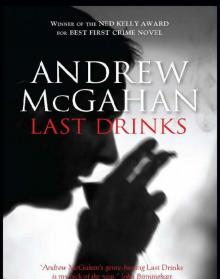 Last Drinks
Last Drinks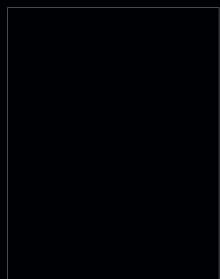 Wonders of a Godless World
Wonders of a Godless World Underground
Underground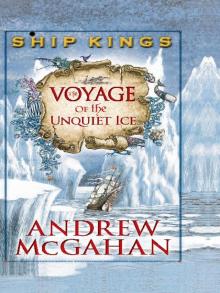 The Voyage of the Unquiet Ice
The Voyage of the Unquiet Ice